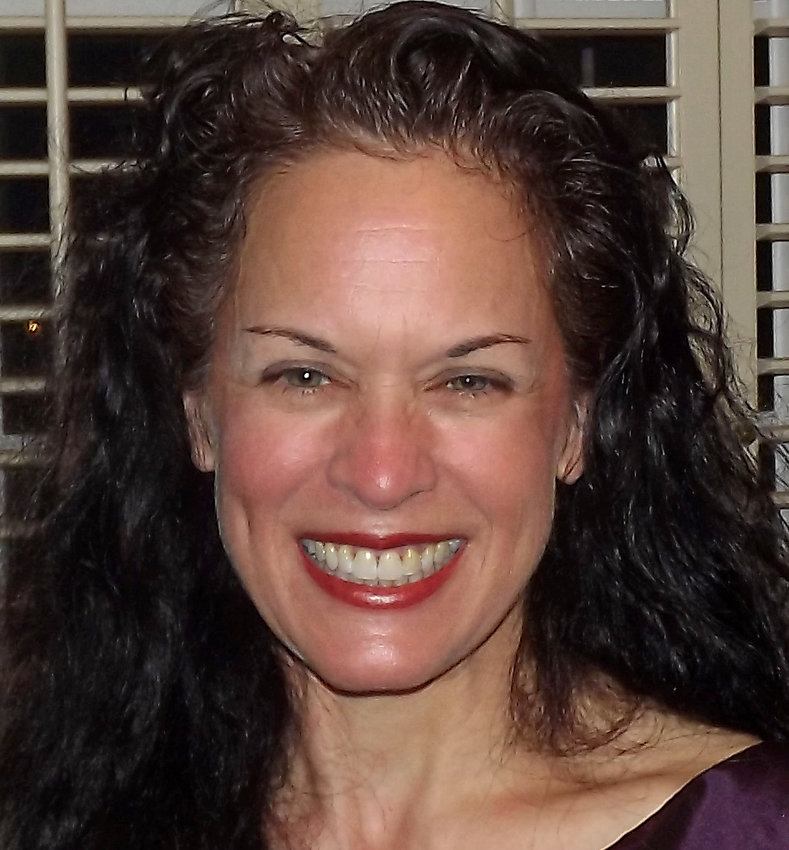Bridget Grumet, metro columnist with the Austin (Texas) American-Statesman, and Cindi Scoppe, editorial writer and columnist with The Post and Courier in Charleston, South Carolina, are the recipients of the 2022 Carmage Walls Commentary Prize from America's Newspapers — in recognition of courageous and constructive editorial commentary.
The prize is named for the late Benjamin Carmage Walls whose newspaper career spanned seven decades. Walls primarily owned community newspapers and advocated strong, courageous and positive editorial page leadership.
Grumet placed first among newspapers with circulations over 50,000 circulation and Scoppe placed first among newspapers under 50,000. First-place carries a cash prize of $2,000.
Second-place honors go to Brian Colligan, opinion editor of The Virginian-Pilot in Norfolk, and Dave Stafford, opinion page editor of The Republic in Columbus, Indiana. Second-place includes a cash prize of $1,000.
Following are additional details, as well as judges' comments about the entries recognized this year.
Over 50,000 circulation
Bridget Grumet
Austin (Texas) American-Statesman
In order for democracy to work, voters must feel safe casting their ballots and election workers must feel safe counting them. That is not always the case in Texas, however, where lawmakers have criminalized voter errors and Attorney General Ken Paxton, a Republican, has tried to indict election officials in Democratic strongholds over minor incidents with partisan pollwatchers. With groundbreaking reporting and unsparing prose, Grumet called out these abuses and stood up for those caught in the crossfire.
In her work with the Statesman’s Editorial Board, Grumet scrutinized GOP lawmakers’ efforts to make it harder for some Texans to vote. After moving into her role as Metro columnist, Grumet earned the trust of two local election officials in Austin and Houston who had been targeted for criminal prosecution by the Texas Attorney General. Both officials, who had been cleared by grand juries, agreed to let Grumet publicly share their unsettling accounts for the first time. Grumet’s exclusive, in-depth reports provided startling new insights into the ways Paxton was using his office for plainly partisan goals.
Grumet deftly connected the dots for readers on the growing threats faced in Texas to the integrity of elections, from the state's attempts to prosecute Democratic election officials to the deeply flawed voter roll purge and, most recently, the drive to prevent voters from using the federal courts to fight the attacks on their voting rights. With this tenacious body of work, Grumet reminded Texans what is at stake as they choose lawmakers and a state attorney general in 2022.
Carmage Walls judges said both of Grumet's entries (both this one on elections and a second entry about homelessness) were really, really strong. Her columns on election integrity were so important, they said, and so well researched.
Austin American-Statesman Executive Editor Manny García, who edits Grumet's work, said: "Bridget writes with an authority only found in a deeply reported column. She brings relevance, gravitas and clarity to her work and our community is the better for it. Bridget's reporting exposes meanness, sham and calls attention to abuses of power that the public needs to know about. We are beyond honored to see Bridget recognized with the Carmage Walls Commentary Prize. She is so deserving of this important recognition."
Read her entry:
Under 50,000 circulation
Cindi Scoppe
The Post and Courier

Election access and integrity have devolved into culture-war issues across the country in recent years, and that's been the case in the always politically charged state of South Carolina. Scoppe pushed back against this trend, working to keep lawmakers and the public focused on actual problems that need to be solved. In columns and editorials, she has advocated for early voting, state intervention in incompetent county election commissions, changes to voting laws and creative approaches to reduce the built-in biases in the election system that encourage hyper-partisanship.
Her deep institutional knowledge and straight-forward style provided critical insight and context to the debate, and helped create the middle ground that allowed S.C. lawmakers from both parties to come together and unanimously pass legislation to expand voting options, eliminate actual problems with our election system and reject the sorts of extreme changes that legislators have been passing in both red and blue states.
The judges said she did a great job bringing fresh material in, explaining background and bringing them along to be on her side on a topic that is very much in the public interest. Even in its criticism, they said the columns were balanced and fair, which gave weight to the persuasiveness of the piece. Judges also were impressed that the columns didn't come across as partisan and broke down the specifics using everyday language, something they said would be good for people who might not be as interested in politics. One judge commented that she felt like she could print this out and hand it out in her home state, saying: This is how elections works. This is how voting works!
Read her entry: click here to view the following editorials
Over 50,000 circulation
Brian Colligan
The Virginian-Pilot

Colligan's editorials, all published between January and May 2022, speak to attacks on public education by Virginia Gov. Glenn Youngkin, state lawmakers and local school board officials in the region. They forcefully rebut the accusations made against teachers and schools — including attempts to remove "divisive concepts" from the classroom and to ban books — and outline a legal effort against the governor for information related to a tip line to solicit complaints that he is shielding from public view.
The judges said his first column, especially, was beautifully written. "It was a bomb," one judge commented. "It was that good!" They said the columns raised profound and important issues in the local community.
Read his entry:
Under 50,000 circulation
Dave Stafford
The Republic
Beginning early this year, several bills introduced in the Indiana General Assembly sought to restrict what teachers could say in the classroom and the guidance librarians could provide. Some of these bills were motivated by dubious claims about critical race theory, but others were downright chilling.
One raised the spectre that librarians could be prosecuted if deemed to have provided "harmful material" to minors. These bills were fraught with First Amendment implications and demonstrated a punitive disposition toward public servants. The editorial board of The Republic saw a need to speak out strongly against these bills and call them what they were: efforts at authoritarian censorship.
Readers responded. First, an unprecedented coalition of local education and civic leaders wrote letters opposing bills that had the support of local lawmakers. Then, hundreds of people participated in a "read-in" at the public library in Columbus, many also demonstrating against the anti-librarian legislation. As a result of the paper's editorial leadership and the pressure Hoosiers put on lawmakers, these bills were withdrawn from the General Assembly.
Judges commented that his editorials were among the shortest overall, but also the sharpest — very powerful. They said the editorials flowed really well from thought to thought and had them engaged from the beginning. One judge said editorial writers sometimes feel like they are tilting at windmills and fighting the good fight without seeing direct change. This series did have an impact, with the bills being withdrawn.
Read his entry:
Under 50,000 circulation
David Bloom, managing editor of The Baytown Sun in Texas, for editorials that sought to promote a dialogue about open government. Judges said this was a great example of a paper holding government accountable. They liked the directness of how he addressed those he was calling out and the pointed recommendations that he offered for action. They also liked that it was difficult to discern a political point of view; instead, his editorials came across as wanting to help the community. One judged noted that all editorial boards write about transparency in government, but this entry stood out to him as having a bit more "snap" to it than some. It also was so well written that it didn't represent heavy lifting on the part of readers.
Read his entry:
Under 50,000 circulation
Jeffery Gerritt, editor of the Sharon Herald in Pennsylvania, for editorials that urged the General Assembly and governor to abolish Pennsylvania's death-penalty statute. Judges said the editorials were captivating and did a really good job of outlining the issues. They said the editorials were well written, well researched and offered bold editorial commentary on a controversial topic — and demonstrated why this national topic mattered at home.
Read his entry:
Under 50,000 circulation
Eric Hartley, opinion editor of The Desert Sun in Palm Springs, California, for editorials calling for the long-promised new campus in Palm Springs for the College of the Desert. Judges noted that these editorials addressed a complex matter, but in a way that it was immediately apparent what was going on. One judge commented that this was a topic that is as hyperlocal as it gets — something that almost could be an investigative series, but was written from an editorial point of view regarding serious operational problems with an educational institution in an area that desperately needs it. They liked that he addressed the financial issues involved, without coming across as angry or accusatory, but simply pointing out the impact to the community.
Read his entry:
Over 50,000 circulation
Lee Wolverton, vice president of news and executive editor of the Charleston Gazette-Mail in West Virginia, for editorials that took on the governor of West Virginia. Judges said Wolverton is a terrific columnist, who offered beautiful lyrical writing. One judge said he enjoyed Wolverton's columns for the pure joy of reading him.
Read his entry: view all four editorials at this link
Over 50,000 circulation
Bridget Grumet, metro columnist for the Austin American-Statesman, for a second entry containing columns about the city's handling of homelessness. Judges said these columns had the strongest call to action of any of the entries. They said the complexity of the issue was well broken down and the reporting — within the context of opinion writing — was "top notch." One judge simply said: "She's amazing. There's no surface to this whole thing. She just digs in!"
Read her entry: